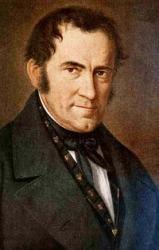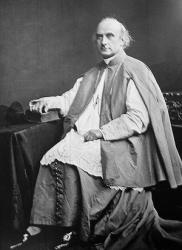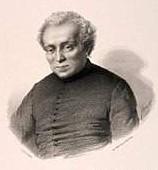Planning worship?
Check out our sister site, ZeteoSearch.org,
for 20+ additional resources related to your search.
- |
User Links
Person Results
‹ Return to hymnal






Export as CSV
Claudia Frances Hernaman
1838 - 1898 Person Name: Claudia F. Hernaman Hymnal Number: 49 Author of "Lord, Who Throughout These Forty Days" in Parish Mass Book Hernaman, Claudia Frances, née Ibotson, daughter of W. H. Ibotson, sometime Vicar of Edwinstowe, Notts, was born at Addlestone, Surrey, Oct. 19, 1838, and married Sept. 1858, to the Rev. J. W. D. Hernaman, one of H. M. Inspectors of Schools. Mrs. Hernaman has composed more than 150 hymns, a great proportion of which are for children, and also some translations from the Latin. Her publications include:—
(1) The Child's Book of Praise; A Manual of Devotion in Simple Verse by C. F. H. Edited by the Rev. James Skinner, M.A., &c, 1873 ; (2) The Story of the Resurrection 1879; (3) Christmas Story, 1881; (4) Christmas Carols for Children, 1st series, 1884; 2nd series, 1885; (5) The Way of the Cross, a Metrical Litany, 1885; (6) Hymns for the Seven Words from the Cross, 1885; (7) The Crown of Life: A volume of Verses for the Seasons of the Church, 1886.
In addition to these original publications Mrs. Hernaman contributed hymns to the Church Times, to various magazines, and to
(l) Hymns for the Children of the Church (22 hymns). 1878; (2) Hymns for the Little Ones in Sunday Schools (10 hymns), 1884; (3) The Rev. M. Woodward's (Folkestone) Children's Service Book, 1883; (4) Mrs. Brock's Children's Hymn Book, 1881; and (5) The Altar Hymnal, 1884. Mrs. Hernaman edited The Altar Hymnal, and contributed thereto a few translations from the Latin in addition to original hymns.
Mrs. Hernaman's hymns in common use appeared as follows:—
i. In her Child's Book of Praise, 1873.
1. Behold, behold He cometh. Advent.
2. Holy Jesus, we adore Thee. Circumcision.
3. How can we serve Thee, Lord. For Choristers.
4. Jesus, in loving worship. Holy Communion.
5. Jesus, Royal Jesus. Palm Sunday.
6. Lord, I have sinned, but pardon me. Penitence.
7. Lord, Who throughout these forty days. Lent.
8. Reverently we worship Thee. Holy Trinity.
ii. In her Appendix to The Child’s Book of Praise, 1874, and Hymns for Little Ones, 1884.
9. Hosannah, they were crying. Advent.
iii. In her Christmas Carol, 1875.
10. Angels singing, Church bells ringing. Christmas Carol.
iv. In Hymns for the Children of the Church, 1878.
11. As Saint Joseph lay asleep. Flight into Egypt.
12. Come, children, lift your voices. Harvest.
13. God bless the Church of England. Prayer for the Church.
14. Happy, happy Sunday. Sunday.
15. He led them unto Bethany. Ascension.
16. Jesu, we adore Thee. Holy Communion.
v. In her Story of the Resurrection, 1879.
17. Early with the blush of dawn. Easter.
18. Now the six days' work is done. Sunday.
vi. In The Altar Hymnal, 1884.
19. Arm, arm, for the conflict, soldiers (1880). Processional.
20. Calling, calling, ever calling. Home Mission. Written in 1878, and printed in New and Old.
21. Gracious Father, we beseech Thee. Holy Communion.
22. Hail to Thee, 0 Jesu. Holy Communion.
23. Magnify the Lord today. Christmas.
24. 0 Lamb of God, Who dost abide. Holy Communion.
25. This healthful Mystery. Holy Communion.
vii. In Mrs. Brock's Children's Hymn Book, 1881.
26. It is a day of gladness. Girls' Friendly Societies.
Mrs. Hernaman's translations in The Altar Hymnal are annotated under their Latin first lines. There is also her Good Shepherdhymn, in three parts. (1) “Faithful Shepherd of Thine own;" (2) “Faithful Shepherd, hear our cry;" (3) "Shepherd, who Thy life didst give," which appeared in Hymns for the Children of the Church, 1878, and in The Altar Hymnal 1884. She died Oct. 10, 1898.
--John Julian, Dictionary of Hymnology (1907)
Claudia Frances Hernaman
Charles Coffin

1676 - 1749 Person Name: C. Coffin Hymnal Number: 40 Author of "The Coming of Our God" in Parish Mass Book Coffin, Charles, born at Buzaney (Ardennes) in 1676, died 1749, was principal of the college at Beauvais, 1712 (succeeding the historian Rollin), and rector of the University of Paris, 1718. He published in 1727 some, of his Latin poems, for which he was already noted, and in 1736 the bulk of his hymns appeared in the Paris Breviary of that year. In the same year he published them as Hymni Sacri Auctore Carolo Coffin, and in 1755 a complete ed. of his Works was issued in 2 vols. To his Hymni Sacri is prefixed an interesting preface. The whole plan of his hymns, and of the Paris Breviary which he so largely influenced, comes out in his words.
"In his porro scribendis Hymnis non tam poetico indulgendunv spiritui, quam nitoro et pietate consulendum esse existimavi. Pleraque igitur, argumentis convenientia e purissiinis Scripturae Sacrae fontibus deprompsi quac idoneis Ecclesiae cantui numeris alligarem."
His hymns are described by a French critic as having less brilliancy than those of Santüil (q.v.), but more simplicity and unction. They number 100 in the edition of 1736. Translated into English by J. Chandler, I. Williams and others, are noted under their respective Latin first lines. [William T. Brooke]
-- John Julian, Dictionary of Hymnology (1907)
Charles Coffin
Franz Xaver Gruber

1787 - 1863 Person Name: Franz Gruber Hymnal Number: 43 Composer of "[Silent night, holy night]" in Parish Mass Book Franz Xaver Gruber (1787-1863) was born into a linen weaver's family and studied violin and organ even though his father wanted him to work in the family business. In addition to serving as parish organist for St. Nicholas Church in Obendorf, he taught school in nearby Arnsdorf (1807-1829) and Berndorf (1829-1833). He spent the balance of his career as organist and choir director in Hallein, where he founded the famous Hallein Choral Society.
Bert Polman
Franz Xaver Gruber
Richard Runciman Terry

1865 - 1938 Person Name: R. R. Terry, 1865-1938 Hymnal Number: 60 Composer of "[Praise to the Holiest in the height]" in Parish Mass Book Terry, Richard R., was born at Morpeth, Jan. 3, 1868, and was Tate Choral Scholar at King's College, Cambridge. In 1896 he became organist and music-master at Downside R. C. College and Abbey, Bath; and in 1901 organist and director of the choir at Westminster Cathedral (R. C.) London. He contributed to A. E. Tozer's Catholic Hymns, 1898, thirteen tunes and the words of two hymns:—
1. Christ, the Lord, is my true Shepherd. Ps. xxiii.
2. Peaceful eve, so still and holy. Christmas Carol. It is marked as D. C. B., i.e. for Downside Coll., Bath.
The tune by Mr. Tozor was published in 1881 to a carol beginning with the same first line, but otherwise entirely different.
--John Julian, Dictionary of Hymnology, New Supplement (1907)
Richard Runciman Terry
Clarence A. Walworth

1820 - 1900 Person Name: Rev. C. Walworth Hymnal Number: 62 Translator of "Holy God, We Praise Thy Name" in Parish Mass Book Walworth, Clarence Alphonsus, born in 1820, graduated at Union College, 1838, admitted to the Bar 1841, studied for the ministry of Protestant Episcopal Church, but subsequently was ordained as a priest of the Roman Catholic communion, and became Rector of St. Mary's, Albany, in 1864. He was one of the founders of the Order of the Paulists in the U.S.A. He published The Gentle Skeptic, N.Y., 1863, and Andiatoroctè, or the Eve of Lady Day, &c, N.Y., 1888. His paraphrase of the Te Deum, "Holy God, we. praise Thy name," p. 1133, ii. 7, is in the Catholic Psalmist, Dublin, 1858, p. 170. In the American Episcopal Hymnal, 1892, it begins with stanza ii., slightly altered, as "Hark, the loud celestial hymn." He died in 1900. [Rev. L. F. Benson, D.D.]
--John Julian, Dictionary of Hymnology, New Supplement (1907)
Clarence A. Walworth
Melchior Vulpius
1570 - 1615 Hymnal Number: 48 Composer of "[This is our accepted time]" in Parish Mass Book Born into a poor family named Fuchs, Melchior Vulpius (b. Wasungen, Henneberg, Germany, c. 1570; d. Weimar, Germany, 1615) had only limited educational opportunities and did not attend the university. He taught Latin in the school in Schleusingen, where he Latinized his surname, and from 1596 until his death served as a Lutheran cantor and teacher in Weimar. A distinguished composer, Vulpius wrote a St. Matthew Passion (1613), nearly two hundred motets in German and Latin, and over four hundred hymn tunes, many of which became popular in Lutheran churches, and some of which introduced the lively Italian balletto rhythms into the German hymn tunes. His music was published in Cantiones Sacrae (1602, 1604), Kirchengesangund Geistliche Lieder (1604, enlarged as Ein schon geistlich Gesanglmch, 1609), and posthumously in Cantionale Sacrum (1646).
Bert Polman
Melchior Vulpius
Robert Campbell
1814 - 1868 Person Name: R. Campbell Hymnal Number: 40 Translator of "The Coming of Our God" in Parish Mass Book Robert Campbell was an advocate residing in Edinburgh. He is not much known as an author, but some of his hymns have been adopted in several hymnals. He was Roman Catholic. His death occurred in 1868.
--Annotations of the Hymnal, Charles Hutchins, M.A. 1872.
====================
Campbell, Robert. Advocate, of Sherrington, Scotland, was born at Trochmig, Ayrshire, Dec. 19, 1814. When quite a boy he attended the University of Glasgow. Though showing from his earliest years a strong predilection for Theological studies, eventually he fixed upon the Scottish law as a profession. To this end he entered the Law Classes of the University of Edinburgh, and in due course entered upon the duties of an advocate. Originally a Presbyterian, at an early age he joined the Episcopal Church of Scotland. He became a zealous and devoted Churchman, directing his special attention to the education of the children of the poor. His classical attainments were good, and his general reading extensive. In 1848 he began a series of translations of Latin hymns. These he submitted to Dr. Neale, Dr. Mills of Ely, and other competent judges. In 1850, a selection therefrom, together with a few of his original hymns, and a limited number from other writers, was published as Hymns and Anthems for Use in the Holy Services of the Church within the United Diocese of St. Andrews, Dunkeld, and Dunblane. Edinburgh, R. Lendrum & Co.
This collection, known as the St. Andrews Hymnal, received the special sanction of Bishop Torry, and was used throughout the Diocese for some years. Two years after its publication he joined the Roman Catholic Church. During the next sixteen years he devoted much time to the young and poor. He died at Edinburgh, Dec. 29, 1868.
From his collection of 1850, four translations were given in Hymns Ancient & Modern, 1861, "At the Lamb's high feast we sing;" “Come, pure hearts, in sweetest measures;" "Ye Choirs of New Jerusalem;" " Ye servants of a martyr'd God" (altered). Attention was thereby directed to his translations. They are smooth, musical, and well sustained. A large number, not included in his 1850 collection, were left by him in manuscript. From these Mr. O.Shipley has printed several in his Annus Sanctus, 1884. (C. MSS.)
--John Julian, Dictionary of Hymnology (1907)
Robert Campbell
James Chadwick

1813 - 1882 Person Name: J. W. Chadwick Hymnal Number: 42 Author of "Angels We Have Heard on High" in Parish Mass Book Chadwick, James, was born April 24, 1813, at Drogheda, Ireland, and educated at Ushaw College, Durham, where he was ordained in 1836, and successively became Professor and President. In 1866 he was consecrated H. C. Bishop of Newcastle, and died May 14, 1882. Two hymns which he contributed to the Holy Family Hymns, 1860, are in most later Roman Catholic hymnals:—
1. Hail, holy mission, hail. For a Mission.
2. Jesus, my God [Lord], behold at length the time. Repentance.
--John Julian, Dictionary of Hymnology, New Supplement (1907)
====================
See also in:
Cyberhymnal
James Chadwick
Melvin L. Farrell
1930 - 1986 Person Name: Melvin Farrell Hymnal Number: 100b Translator of "Virgin, Full of Grace" in Parish Mass Book
Melvin L. Farrell
L. Lambillotte

1796 - 1855 Person Name: Rev. Louis Lambillotte, S. J. Hymnal Number: 56 Composer of "[Come, Holy Ghost, Creator blest]" in Parish Mass Book
L. Lambillotte


 My Starred Hymns
My Starred Hymns


